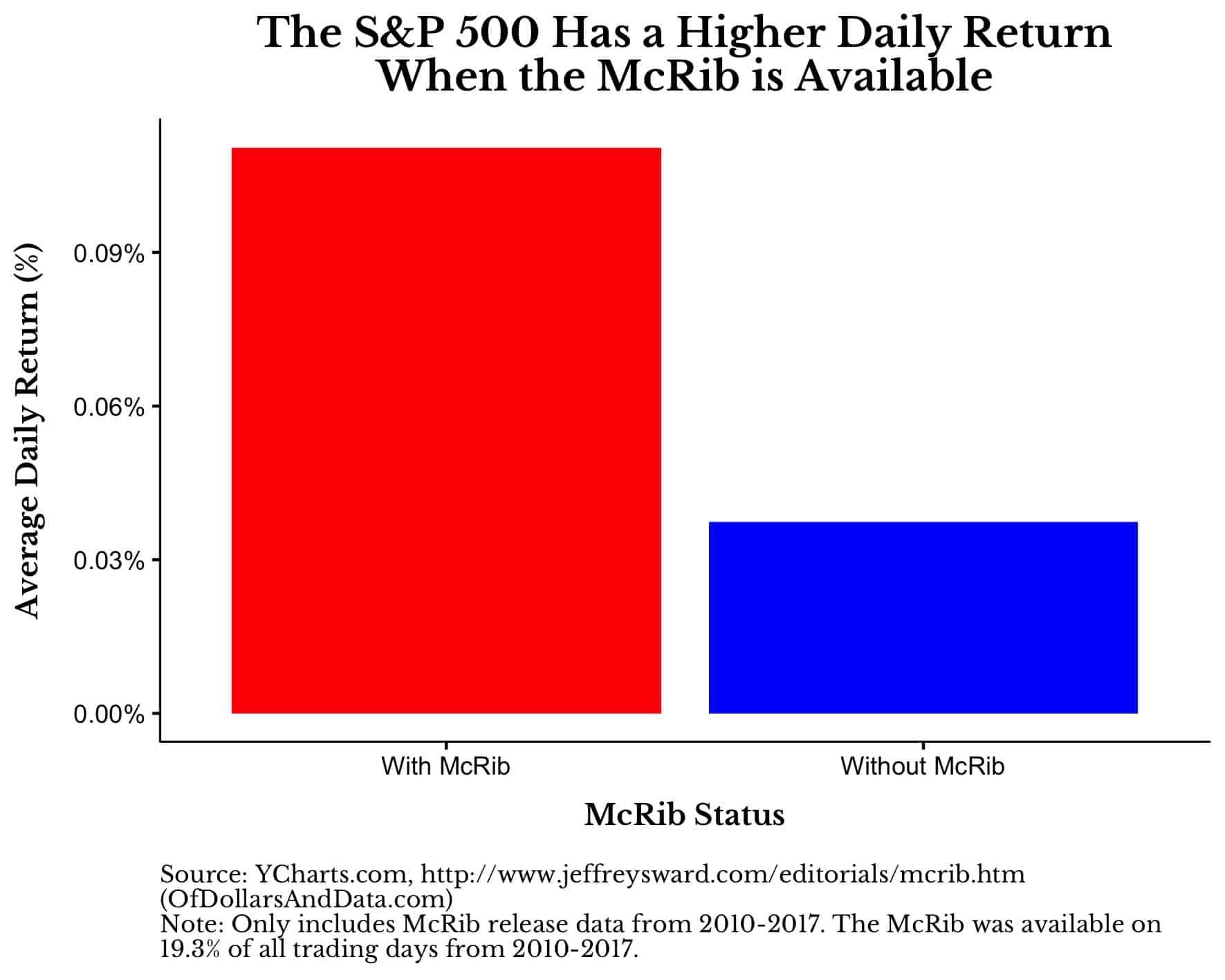Repeat after me: Correlation is NOT Causation.
Understanding cause and effect is the biggest problem facing society because it touches every part of our lives. Health? Politics? Economics? All of these, and more, involve making causal arguments around systems that are highly complex.

By Capital Thinking · Issue #843 · View online
It’s Sunday morning.
You walk to your mailbox and see a letter from a mysterious stock research firm. The firm claims that their market insights team knows with 100% certainty that a particular stock is going up over the next week.
Skeptical, you put the envelope aside and go about your day.
The McRib Effect
Nick Maggiulli | Of Dollars and Data:
One week later you receive another letter from the same firm, but this time they claim a different stock is about to drop in price. You go back to the first letter, and, lo and behold, they were right. The stock went up. Your interest is piqued.
Over the course of the next week you watch the stock from the second letter drop as predicted. Now you are hooked.
Week after week, letter after letter, the firm continues to reveal the future of a single stock as if reading from a crystal ball. After 10 weeks of correct predictions, you get a final letter asking you to invest money with them for a sizable commission.
You calculate the probability that they could get 10 positive/negative calls correct in a row is 1/1,024 (or 210). This can’t be chance, right?
You decide to pull the trigger and invest with them. Months later you are broke after the firm fails to repeat their prior success. What went wrong?
Unbeknownst to you, you were not the only individual to receive letters from this mysterious research firm. In fact, in the first week, letters were sent to 10,240 people (including you). Half of these letters (5,120) predicted that stock A would rise, while the other half (5,120) predicted that stock A would fall.
The 5,120 individuals that received the letter saying stock A would rise (the correct group), received a second mailing in the following week. Half of these “week 2” letters (2,560) stated that stock B would rise, while half (2,560) stated that stock B would drop.
This process continued each week with those individuals who received correct calls getting additional mailings. After 10 weeks of this, there are exactly 10 individuals who received 10 correct calls in a row (1/1,024 * 10,240) completely by chance.
You happen to be one of the lucky (or shall I say unlucky?) individuals to get 10 correct calls.
This thought experiment, from How Not to Be Wrong: The Power of Mathematical Thinking by Jordan Ellenberg, illustrates how statistical happenstance can masquerade as skill. The problem we will face throughout life is how to differentiate between causation and correlation—between signal and noise.
To illustrate this, let’s examine something I am calling The McRib Effect.
Every year since 2010, McDonald’s re-releases its pork-based sandwich, the McRib, for a limited time across the U.S. After hearing that the McRib was being re-released on October 29, 2018, I immediately wondered whether the McRib’s availability had any affect on the stock market.
I found some historical re-release dates online, ran the numbers, and discovered I was right:


Photo credit: Carlos Macías on Unsplash
